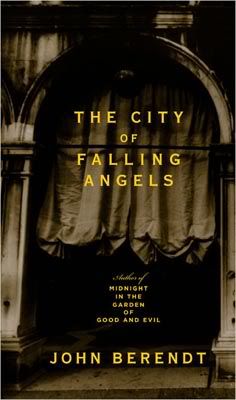Perhaps you do. Over the past few years I have befriended many people through contact established on the Internet. Mostly by virtue of running a network of writers on a social and business networking site – Ryze Business Networking. Many of these connections feel strong and binding, the friendships established, unshakeable, come hell or high water. Then there are the others, oh so many others, who appeared normal and sane at the outset. They presented themselves as people who had something substantially larger than a pea knocking around within the confines of their skulls.
The writers’ network is flourishing and the quality of writing remains high. I can, at the very least, vouch for the quality of prose that we get to read on this network and for the most part I am proud of what my friend and I created in one moment of disenchantment with another network. I am not in a position to say much about the poetry. I certainly enjoy reading and analyzing poetry and have even attempted verse. But I express myself better in prose. Most poetry I read on this network and others is either incomprehensible to me or inconsequential. It has always amazed me to see how poetic people can get about love and angst.
But, I digress; poets have always been as welcome on Shakespeare and Company as have prose writers. Humor is also an integral part of how we write and an underlying subtext in how the network wants to progress and grow. So things should be hunky-dory, shouldn’t they? Well, I don’t know if it is jealousy or the affinity for disequilibrium that members of our species show. They get tired of seeing a good thing; they get tired of things running on an even keel and are always on the look out for creative ways to summon chaos. They want to unsettle things, they set out with a wrecking ball; the idea of breaking, damaging and later settling down to analyze the results of the destruction they wrought, like erudite scholars, is of immense appeal to them.
I have a fairly healthy self image. I have a strict sense of fairness, my objectivity knows no equals (not amidst my contacts), I treat people with respect believing that is the only way to get respect and, most importantly, I am consistent in my behavior. I don’t present myself as someone one day and as an evil, alien twin of this someone the next day. It is precisely this trait in people that I don’t understand, and in fact abhor. I have no patience for inconsistency even if the excuses offered are:
“I had a bad day”
“I don’t know what I was thinking”
“I was off my Prozac”
“I suffer from bipolar disorder”
I just don’t have the genes that it takes to understand inconsistent people or to sympathize with their condition. I don’t change from day to day, so do not change on me.
So back to the original question, do you learn about two-faced, inconsistent people sooner online than you do in a real interaction? In a virtual interaction, other than the ubiquitous Yahoo emoticons, there is no way to observe body language, no way to read between the lines or to collate and compile subtleties of communication from that which is left unsaid. But perhaps one could see a cyber connection as one where the message is pure, from brain to fingers, to high speed cables to the screen of the person you’re addressing; messages that are not disguised by the aforementioned non-verbal cues. So maybe the masks drop sooner. In my experience they have and every time a new ugliness is revealed in all its glory, it takes my breath away. An analogy would be an unsuspecting victim of a house on fire who decides to make an exit through a door and turns the knob only to be blasted into nothingness by lashing tongues of fire.
People are often adamant on the stances they choose to adapt. Calling a truce, talking things through, trying to be objective and seeing things from other perspectives is out of the question, although these ideals of human behavior often get significant lip service, in all quarters. They are given names like “healthy discussions”, “agreeing to disagree”, while getting even more firmly entrenched in dogma and a belief that one is always correct no matter what.
Running a network, occasionally two, has been quite the learning experience. Shakespeare and Company – a network of writers on Ryze - is nothing more than what it says it is – a network of people who enjoy writing English correctly and derive pleasure out of having their work read as well as from reading what others write. We never said we would train people to write well. We are not professional literary critics. We don’t have contacts in the publishing world and we exist as a network only because I pay Ryze $100 per year for us to exist. C’est tout. But people never cease to amaze me with the expectations they have. Some causes of dissatisfaction, accumulated over a year and a half, are summarized below [these are paraphrased and said in context, not direct quotes]:
- I was staging a play and Shakespeare and Company ignored my requests for the provision of a ‘corpus’ for my audience. They also ignored my pleas for an army of photographers and videographers.
- Some of us are merely tolerated and unfairly “critted” while others garner favorable feedback. I thought I would learn at this network but I am mostly ignored.
- No one reads my poetry.
- I am just here to post; I don’t care what others are writing.
- I only read Individual A. Others are not worth my time.
- No one comments on what I write.
- I thought this was a network of serious writers so how come I see so many humorous posts?
- Why are so many people using pseudonyms? There are fake people on the network.
- Individual A = Individual B, believe you me.
- If I can’t use obscenities while commenting on others works then I feel my freedom of expression is being violated. The moderator is a Nazi.
- I want the freedom to call the members of the board morons. I want to make personal verbal attacks on people and if you stop me I will draw the conclusion that your network is a front for transforming Indians into Americans, especially since you work in the finance industry.
- I will offer one word feedback to people and say “nice work”, “wonderful”. I won’t acknowledge or thank people for their praise of my work. Yet when others do the same I will once again repeat that the network is full of morons.
- I can’t bear this network, but I’ll continue to lurk, use it as free advertisement for my stories.
- I will greet people’s posts by typing up “YAAAAAAAAAWN” as a response.
- I will write bad English, clichéd stories and pathetic love poems and if you don’t respond I’ll tell the world through my blog that the network does not appreciate good work.
- Oh and the poem someone wrote, about the ‘love poetry’ genre the other day? Well, that was a nasty personal attack on me. I won’t post here anymore and I will sever ties with any friends who post here as well. They will have to choose between me and this network.
- There’s a coterie! A nefarious ring!
This last often has me wondering if I should employ a private investigator to unearth this conspiratorial coterie. How dare there flourish a coterie on a network I moderate that doesn’t include me!!
Despite these provocations my stance has usually been one of leaving things alone and letting them resolve or die out by themselves. Reacting only aggravates matters. But perhaps I can say a few words that express my astonishment at what people feel they have a right to tell me, or the libelous remarks they feel they have a right to spew just because they think the Internet is largely standards-free. They fail to realize how lax my standards are on the network as opposed to the behavior I would expect from people who cross the threshold of my home. There is a code of conduct in my home. You can’t enter unless you are invited. If you litter, if you verbally abuse people, if you generally behave deplorably then chances are you will be thrown out. Or perhaps your presence will be tolerated once but you will never be invited again. Also, the people who accept my invitation, I would assume, would be people who share a fondness for me and my family. If that is not the case, I expect they would either turn down the invitation or wouldn’t have been invited in the first place. But if you wreak havoc within my boundaries you will certainly be paid in kind. Not so on the network; there are considerable freedoms on the network.
Before getting a driver’s license in the United States one is told driving ones car on the roads of this country is a privilege not a right. And so it should be with network participation, with being a guest in someone’s home, it should be seen as a privilege and not a right. And one certainly does not have the right to stop being a civilized human being simply because one is a member of a cyber community.

